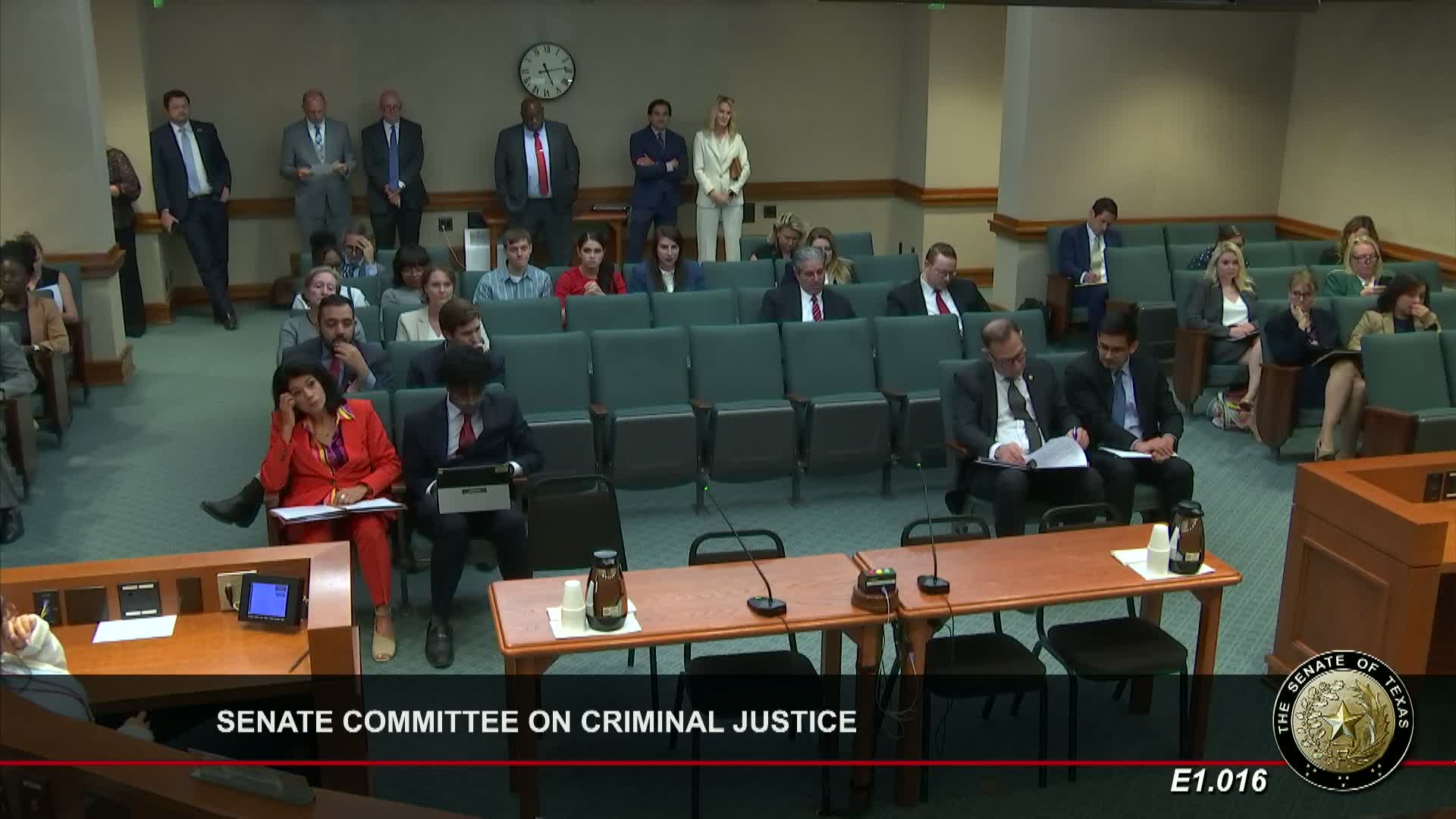Article not found
This article is no longer available. But don't worry—we've gathered other articles that discuss the same topic.
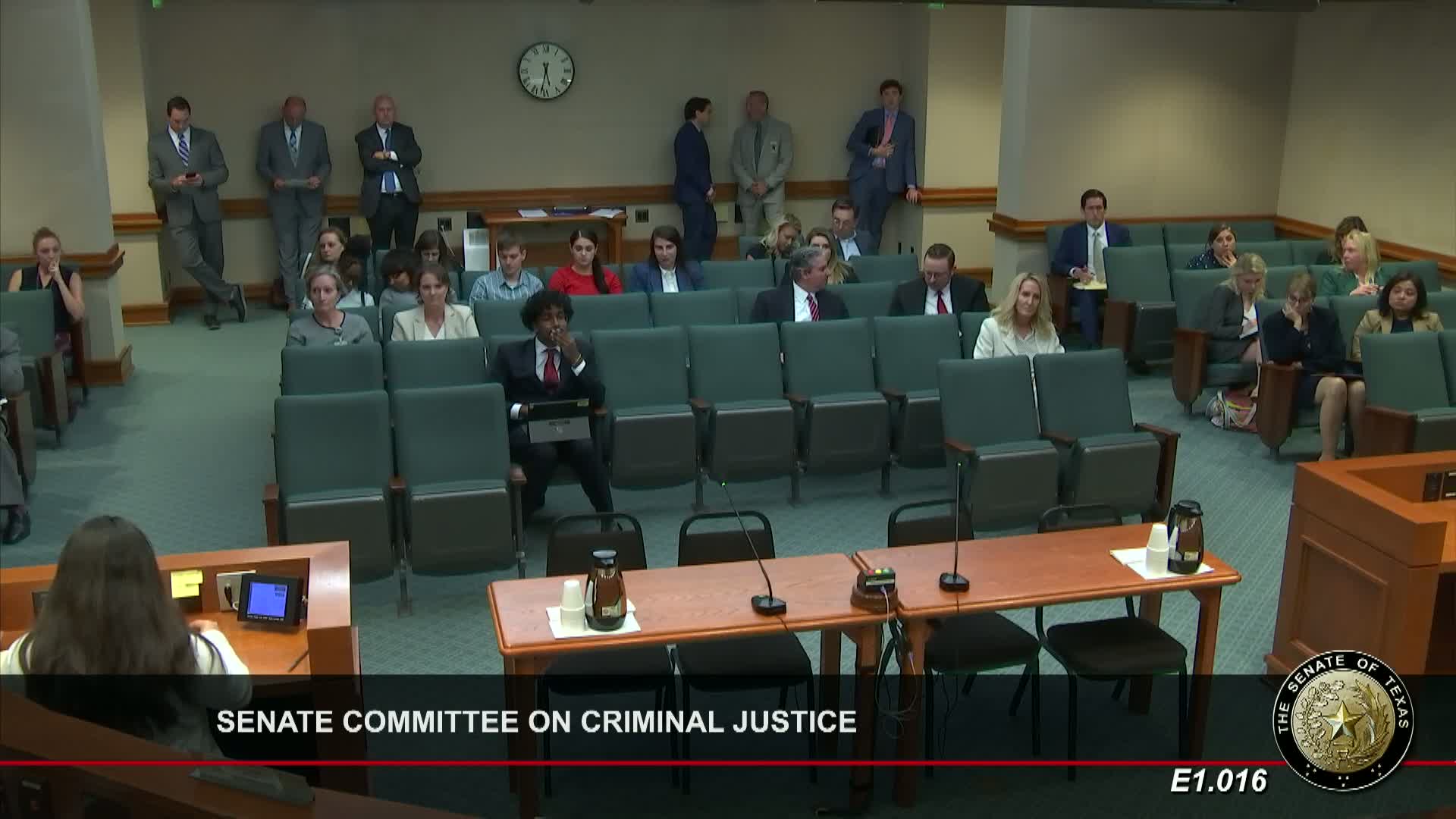
Committee considers video recordings of depositions for elderly and disabled witnesses in criminal cases
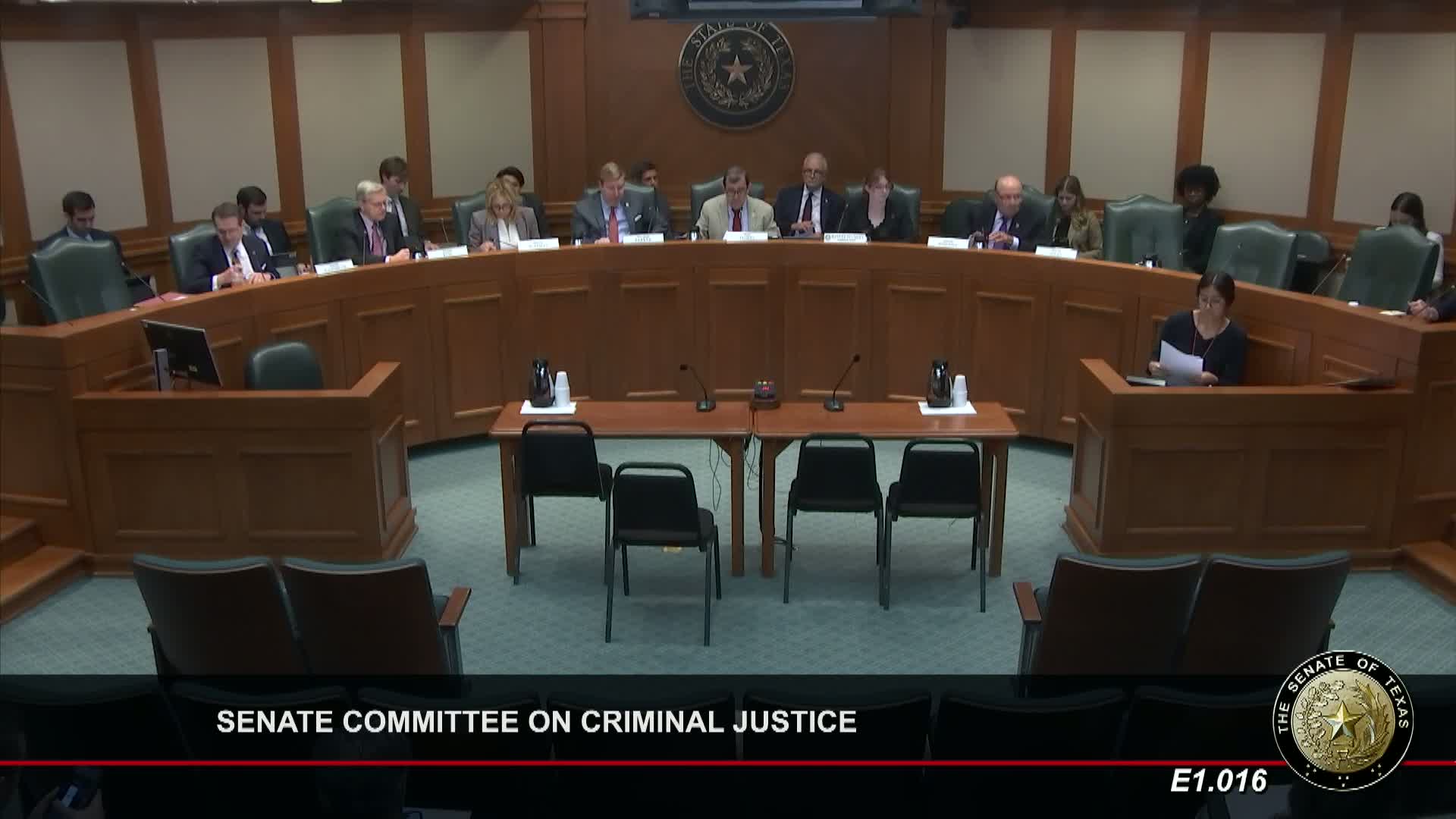
Texas Senate committee hears survivor-backed bill to expand legal definition of consent
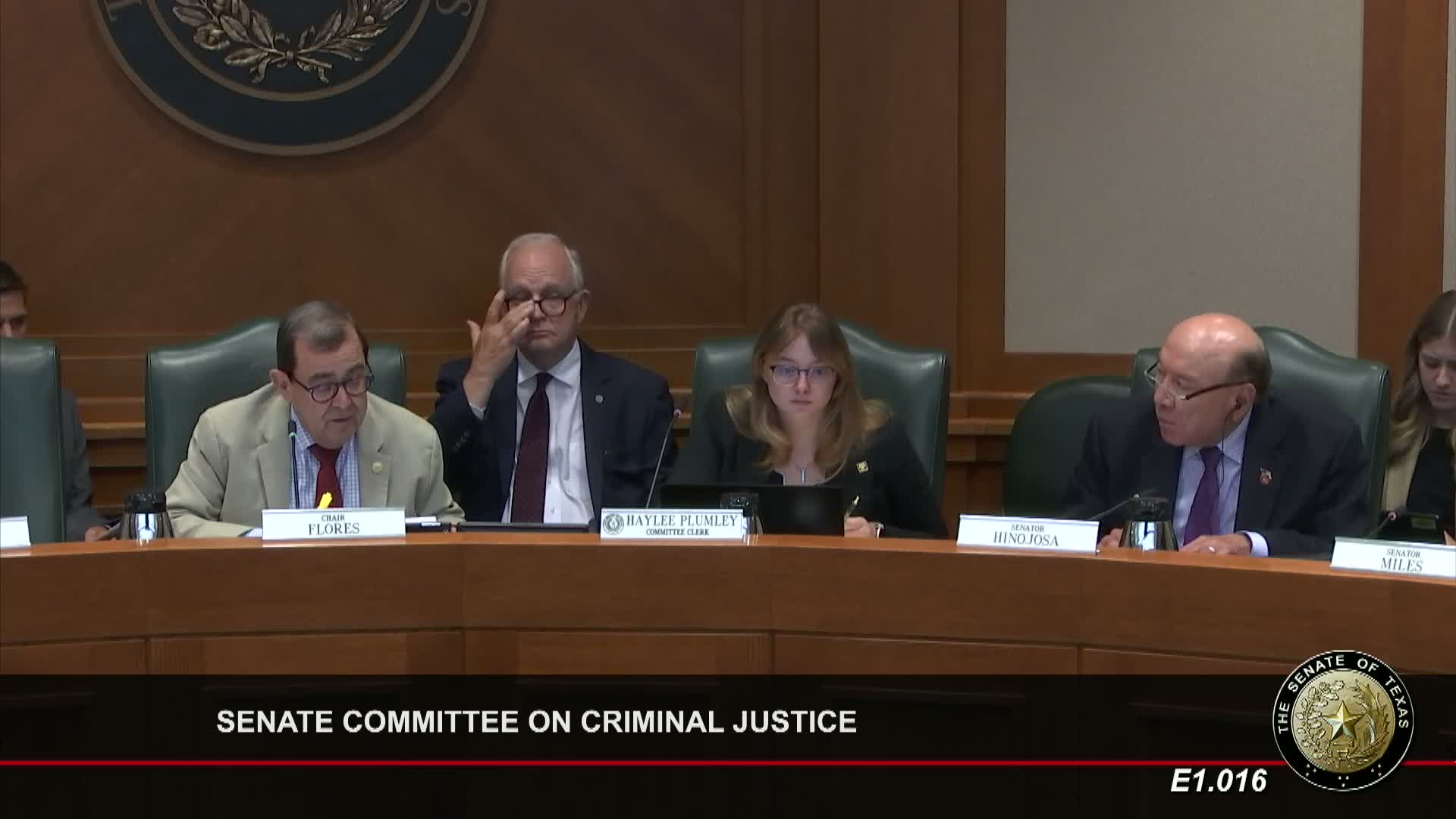
Grand jury reform proposals draw opposition from prosecutors at criminal justice committee
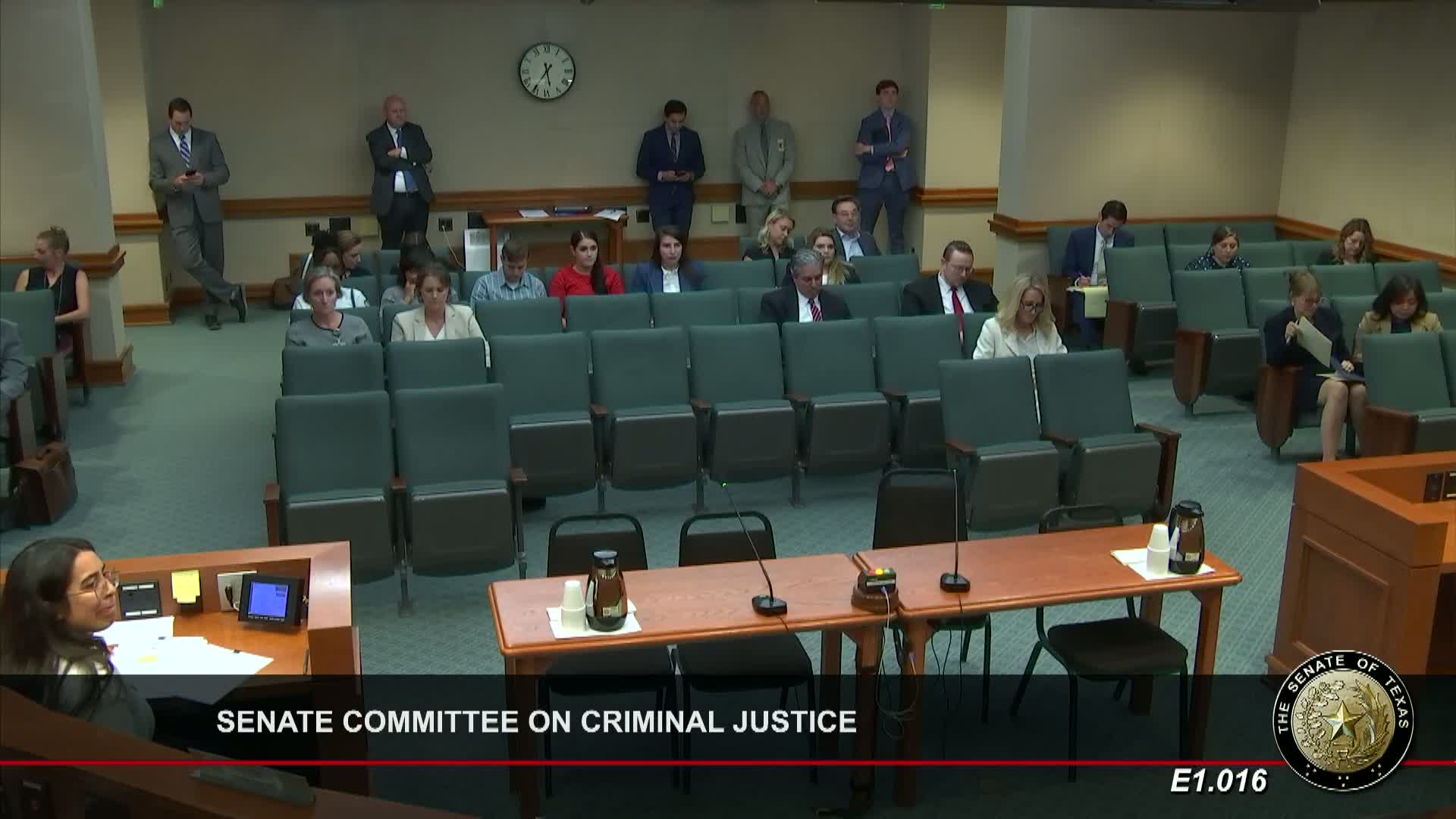
Committee hears bills giving prosecutors faster tools for cybercrime investigations
